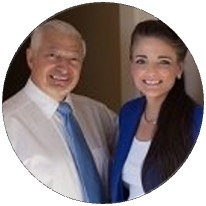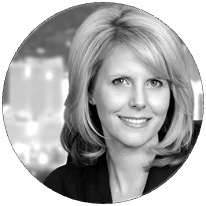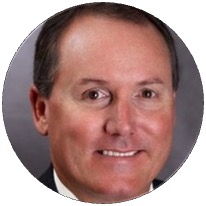
The Winning M&A Advisor [Vol. 1, Issue 5]
Welcome to the latest issue of The Winning M&A Advisor, the Axial publication that anonymously unpacks data, fees, and terms…
This year is shaping up to be one of the hottest on record for M&A activity in the U.S. across the board. According to S&P Global Intelligence deal activity through the first half of 2021 exceeded those completed in all of 2018, which itself was the strongest year for M&A since the 2009 financial crisis. So far this year the market has seen $1.9 trillion in deal activity ranging from small deals to mega-mergers, with no signs of slowing down in 2022.
The lower middle market is no exception.
Despite the lingering impact of the Covid-19 pandemic, mid-market M&A continues to surge on the back of economic optimism and rising interest in the business opportunities present in this segment of the market. Given that lower middle-market M&A was already on a hot streak heading into the pandemic, the 131 deals announced in the second quarter of 2021 are particularly noteworthy and just another sign of the strength of the lower middle market.
Business brokers know this all too well. As agents who help in the purchase and sale of small, mid-market companies, these brokers have a front-row seat to the buying and selling trends that are shaping the lower middle-market today. From Main Street businesses to service firms, construction groups, health care practices and more, companies operating in the $5M-$100M range make up the majority of all businesses in the U.S., with business brokers specializing in working with them alone.
That’s why business brokers are such an important part of the overall M&A economy.
Often business brokers specialize in working with particular industries or in specific geographies, as M&A regulations and licensure can vary from state to state Others are more sector agnostic and instead focus on certain parts of the process, such as preparing businesses for sale or attracting potential buyers. Much like real estate agents, these brokers work to help their clients get the best terms possible and complete their deal on time and earn their fees for doing so.
Business brokers sit at the heart of lower middle-market M&A. Here are a few of the more active business brokers on the Axial platform and a look at how they run their businesses, what they do for their clients, and what they’re seeing out in the lower middle market right now.

Trevin Rasmussen
Founder, Bristol Group
Trevin Rasmussen likes to say that he took a roundabout route to become a business broker. He began his career as a management consultant with Andersen Consulting (now Accenture) and later moved to the accounting firm of Arthur Andersen, eventually consulting with Fortune 500 and mid-market companies in San Francisco, Seattle, and beyond. A move back to his hometown of Boise, Idaho prompted a career change. At that point, he discovered the field of business brokerage and soon after started Bristol Group. Today Rasmussen is an experienced main street and mid-market business broker, a Certified Business Intermediary, and oversees a national network of affiliated brokers.
What’s your focus as a broker?
TR: What we’re trying to do at the Bristol Group is focus on the lower middle-market. What we found is that a business owner will build up their business and, once it’s time for them to sell, they’ll immediately be faced with buyers like private equity groups and family offices. These are people that are well-trained, highly-skilled, and have the resources — including legal and accounting teams – to make sure they get the best deal terms every time. Often the business owner is just frankly over-matched.
What we try to do is represent the business owner at the same level of sophistication as those buyers. It’s not in a competitive or adversarial way, we just want to make sure that both sides of the table have the resources, the knowledge, and the expertise to get a deal done and make it as clean and beneficial as possible to everyone.
Are you targeting any particular types of clients?
TR: Not really. We work with a fairly broad group of lower middle-market companies. What we tell our affiliate brokers is that they should cast a broad net and be somewhat industry agnostic in their local markets. But, sometimes there are national verticals that we pursue. For instance, my partner, Kelly Shaw, is probably the number one expert on selling medical billing companies in the country. He sells dozens of those every year, has a network of buyers looking to buy those businesses, and always has referrals coming to him. He’s got that national vertical locked down. We also have a couple of our brokers who are focused on property management companies and others who do commercial cleaning businesses. So, being locally industry-agnostic while casting a broad net nationally has worked well for us.
Where are you seeing growth in the lower middle market right now?
TR: Obviously 2021 has been a great year. There are a ton of people out there who are retiring and looking to sell their businesses. A lot of people have been spurred on by the pandemic to think about a little earlier retirement. At the same time, there’s lots of liquidity out in the world right now and that money needs to be invested. It’s supply and demand, and as a result, a lot of investors have started to focus on these lower middle-market businesses as a place of opportunity, and it’s turning out to be true.
Are any particular industries or sectors leading this growth?
TR: Right now it’s anything related to construction. My sense is that this year in the United States everybody’s shuffling and relocating. Maybe it’s because of Covid, maybe it’s because they can now work from home, but all that moving has increased the demand for construction services dramatically. On top of that, through the pandemic all of those jobs related to construction were deemed essential, so nobody ever stopped working.
Of course, retail businesses, restaurants, and personal fitness are suffering right now, but fields like construction, healthcare, and agriculture are all still strong and are more than making up for those losses.
Are you seeing this nationally?
TR: We are. It seems like right now buyers don’t see any geographical limitations at all when looking at companies to buy. I was talking to a guy in Indianapolis today and he’s very interested in acquiring a business in Boise, Idaho. And I think that’s becoming more and more common. Buyers just don’t see any barriers to where they can go.
Certainly, that’s the case for the private equity groups. Their approach is always to make good solid investments, rely on the management that’s in place, and deliver solid returns over time. When you’re doing that it doesn’t matter if you as a buyer are located in one state or another. Those types of buyers are going to make acquisitions wherever it makes the most sense.

Jeff and Linda Nyman
Co-Founders, First Choice Business Brokers
Founded in Las Vegas in 1994, First Choice Business Brokers has since grown into the largest business brokerage firm in Nevada with 46 franchise offices operating in 22 states as of 2021. The firm specializes in all types of business sales, large and small, including e-commerce and internet-based businesses, and brings a range of different experiences to the table for its clients including everything from accounting to banking, real estate, management, and even immigration.
That’s a lot of growth in 27 years. How have you approached scaling your brokerage?
LN: We like to think that we perfected the process of business brokerage when we were doing it on our own. I came from a banking background and we had also run a mortgage company that was in 12 states before we launched First Choice. We were very systematic about everything we were doing. Everything had to be packaged appropriately and handled appropriately, and it all turned into a really good system that our agents today continue to follow.
JN: I should add also that the reputation of this industry hasn’t always been stellar. So, we wanted to set a professional benchmark to show people that business brokers could be run correctly and operate efficiently. That’s what we started to do with our systems.
We were the first business brokerage to do an online signing and always tried to be at the forefront of what was possible in terms of professional services and technology. We developed our own back-office system and today all of our offices run on one web interface that’s secure, flexible, and includes all of the smart forms that our brokers need. It’s all professionally handled in comparison to taking a form offline, fill it in by hand, scanning it back in or faxing it, etc. We started all of that early on and it has really helped us grow. That’s why, when services like Axial come along, having their own strong processes in place, that fits right in with who we are as a company. It’s taking professionalism to another level.
Reputation and credibility are a big part of that professionalism, correct?
LN: Huge. Word travels fast in the business community, and there are scam companies out there that have tried to enter our market multiple times. These are brokers who will approach a small business owner, ask for payment upfront, give them a super high, unrealistic valuation, and then the deal never materializes. But when you do things honestly and the community sees that your businesses are selling and they’re selling reasonably close to the asking price, that’s how you build credibility that lasts.
JN: I should also add that, because of our reputation and the way we do business, we have very little turnover among our agents. That’s unusual for a business brokerage but we seem to buck that trend because we have many agents who have been with us for 10, 15, 20 years. That says something not only for the brokerage, that they don’t jump to another company but for the systems we’ve built. All of our processes are designed to help brokers do their work better and more efficiently. And it works.
What types of deals appeal to you?
LN: Main Street businesses are definitely our bread and butter. Even though we don’t have large corporate clients coming to us wanting to sell off of a portion of their company, we deal with many companies that are privately owned. Maybe they’re a mom and pop, or a small family investment group owns them, and they want to either take the business to the next level or get out completely. We’re seeing so many more of those types of clients today.
JN: The list of clients we work with is long, from electrical contractors to construction, medical offices, law firms, urgent care, and senior care facilities. It could be literally anything; we’re really all over. We aren’t specialists in any one area, and that’s one thing that I think helps us through times like recessions or Covid. We’re still here doing business where we find it.
Your national scope must help with that flexibility.
LN: Definitely. It gives you a look at many different situations and industries. And the states are all so different that the trends can vary widely. The state of Nevada is the only state where you have to have both a real estate license and a business broker permit to sell businesses. No other state is that difficult, not even California which you might bring of as being one of the toughest. But the states are all different in the licenses you need, the forms that have to be filled out, and everything else. It’s a national business but it’s still very locally focused sometimes.

Jason Guerrettaz
Founder, Website Closers
In business since 1998, Website Closers focuses on transactions involving e-commerce and digital companies up to $500M, everything from Amazon FBA shops, to SaaS platforms, web businesses, and more. Their reasoning is simple: The digital economy is different from the brick-and-mortar businesses that came before it and brokers need to fully understand the ins and outs of this unique market if they want to get the best deals for their clients.
Why does the market need an e-commerce business brokerage?
JG: We were born out of the idea that the old school business brokerage world needed a change. We felt like it needed more of an operational understanding of the digital space. I’m an e-commerce operator. I’ve been in digital marketing and e-commerce for about a decade while also acquiring businesses. I started to notice that during the process there was a real lack of operational knowledge from the brokering standpoint, whether it be in the lower middle-market or SMB.
I met my partner Ron in the middle of one of my transactions. He agreed, so we decided to make a change in this space. Now we basically own the e-commerce business brokerage space in the United States market and have transitioned from our corporate brokerage into a network of 60-70 franchisee brokers all over the country. Right now we’re about 60-70% e-commerce between websites and Amazon stores. We also do a lot of software companies, digital marketing firms, internet registrars and hosts, etc. Really anything and everything that is digital in nature.
Where is the business cycle in e-commerce right now?
JG: The industry obviously has grown tremendously. Over the last two or three years, we’ve seen a doubling and tripling from where it was before, in terms of the sales volume that these companies are doing. Amazon’s rise has changed things and obviously, Amazon is supported in large part by third-party sellers. Between 50% and 60% of its revenue on its platform is represented by third-party sellers and up to 75% of all searches for consumer products now start on Amazon.
It makes sense that when we think about how retail has changed we consider the fact that Amazon is growing the way it is and people are transitioning out of going to stores. I think COVID had a huge impact as well, and most of our e-commerce clients have all doubled and tripled through COVID. I don’t see a change coming anytime soon; I think this market will continue to grow.
How has this changed the deals you work on?
JG: As more and more e-commerce companies move to Amazon and grow their businesses there, the companies’ sizes are getting bigger. We were selling these Amazon companies as stock transactions early on because there was no way to transfer assets. Back then, a big company would be doing maybe $2 or $3 million in revenue. Now we’ve got companies doing a million dollars a day on the platform, it’s just crazy the amount of volume they’re doing.
Where is the growth in this market right now?
JG: We see a big growth opportunity in Europe. Amazon Germany is doing really well, they’re doing well in Holland, and obviously in the UK where we already represent a lot of companies. We’re continuing to see cross-border transactions becoming more normalized. Whereas before in the lower middle market and SMB it was a little more difficult to complete these types of transactions, it’s starting to get more conducive to get a cross-border transaction done at a reasonable multiple.
As we begin putting people on the ground in Europe I believe we’ll be able to further develop these opportunities, especially in places like France, Germany, Spain, and Italy. Right now part of the problem is that we don’t have people that speak the language, but we see a huge opportunity over there based on what Amazon is doing in those spaces today compared to what they did here four or five years ago.
Has the shift toward larger deals changed this part of the market?
JG: We’re seeing a lot of different types of buyers now compared to a couple of years ago. Right now the big thing is aggregators, who are buying up a lot of third-party Amazon sellers. They’re coming to us on a regular basis and also going directly to people that sell on these platforms. They’re hungry for these deals. And there’s a massive amount of enterprise-level money going into these aggregators. They’ve raised billions of dollars to buy these companies and now they’re all vying against each.
At the same time, we still have the same buyers who were always there: the private equity groups, sponsors/non-sponsors, and family offices. So, the buyer pool has grown tremendously for these transactions because people are finally comfortable with e-commerce as a category and are ready to spend on it

Katrina Loftin
Co-Founder and Managing Partner, M&A Business Advisors
Ethics matter in the brokerage business, and that’s one of the reasons that M&A Business Advisors has long been so active within the industry itself, with its members serving as association presidents, board members, committee chairs, continuing education instructors, and more. That’s part of the culture that Katrina Loftin wanted to put in place when she co-founded the firm in 2017. Now with nine offices across both Nevada and California, she has successfully closed sales of privately held businesses in virtually every industry including manufacturing, logistics, distribution, auto dealerships, service businesses, franchises, restaurants, and hospitality. She has been Nevada’s Top Producer several times and, in 2017, was awarded the Deal Maker of the Year for Nevada from the M&A Insider.
What’s your goal when you sit down with a new client? How do you make sure you can add value for them?
KL: Personally, I try and meet with a potential client three to fives years in advance of any deal and do a complimentary evaluation of their business for them. How much it’s worth, how their documentation looks, where they should be focusing their time. Then I update that every year so that they know where they are.
So many people come to us, not too late, but later than they should. When they do that they don’t have any time to plan and prepare. But when you have the luxury of planning three to five years out we know that we can always get them a better price.
What goes into that type of preplanning?
KL: We look at the financials, make sure everything’s in line. A lot of times they are not. They’re still running personal expenses through the business, or that kind of thing.
The lower-middle-market is a weird area because you still have mom-and-pop-type owners who started their business out of their garage, but then maybe it turned into a great business. So, in those cases, they don’t always know everything they need to do and they don’t always have a great CPA who’s giving them advice on this. Most CPAs are just trying to save on taxes, but we don’t want that in the pre-sales planning stage. We want to show as much profit as possible and not be writing everything down. Are they making purchases that they don’t need to? That’s the kind of planning we like to do for our clients.
Sometimes the seller wants to retire but so does their management team. That’s a huge problem and something that many people don’t even think about. But if we try to sell a business and both the owner and the key managers are leaving, what are we selling? We coach our clients on nuances like that and get them thinking about issues they may not even realize could derail their sale.
Is that approach what you’d consider your secret sauce?
KL: It is. I also think that too many brokers forget that they should be less focused on selling their client’s business and more focused on helping the seller get to the point where it’s a good, viable, and sellable business. That way they can maximize their exit value for them. We do that by sitting down and going through those planning steps with them. We aren’t just out there trying to get listings. We hope that we can list their business a few years down the road but that isn’t our immediate focus.
Are you still seeing dealbreakers out there, even with all the liquidity in the market?
KL: Absolutely. Financials are usually at the top of that list, but a lot of the times buyers will walk away if there isn’t good management in place. It goes back to the fact that a lot of the companies in the lower middle-market are mom-and-pop operations, so the owner is often the key manager and is very hands-on. Especially when there are multiple owners involved if both of them leave that can be a big problem and is easily the second reason that deals will die.
What are you expecting for 2022?
KL: Right now anything with EBITDA of $2 million and up is super hot. Everybody wants to get into manufacturing, which has always been that way and won’t be changing. Distribution as a category has slowed a little bit and isn’t as desirable as it used to be, but I think that everything else – service businesses, B2B, etc is going great. Everyone wants something with recurring revenue, so anything like that is going to remain hot for the foreseeable future.
But it’s pretty easy for us to forecast a year out because of the length of time it takes to sell a business. This year there were a lot of deals done and a lot of people put their businesses on the market because they were worried that capital gains were going to go up. It looks like they are but I don’t think it’s going to be as drastic as we thought.
But still, a ton of people wanted to close this year, and then buyers wanted to buy this year because of all the SBA incentives. This year is going to be probably a record year in my estimation and next year we’ll slow down just a little bit only because of that.

Tom Jones
Senior Vice President & Partner, Transworld Business Advisors
Tom’s career as a business broker started the old-fashioned way: the want ads. Shortly after graduating from the University of North Carolina, he answered a local employment ad posted by a brokerage in Raleigh, and soon found himself working his way up in the industry, first with local mom-and-pop businesses and later with larger, more entrepreneurial enterprises. Later he joined Transworld in Florida as the company’s third employee in charge of developing the business, which today counts more than 250 independent franchise members worldwide across seven countries with more than 1,000 agents in the system. As of 2021, Transworld is the largest business brokerage in the world in its segment and the largest digital advertiser in the industry worldwide.
What’s your day-to-day like at this point?
TJ: My role in the company is as a corporate trainer, so I do a lot of work with the franchisees and their associates. But 95% of the time I’m still down in the trenches doing deals. That’s what I do. That’s what I’ve done since I started my career. I still sell mom-and-pop businesses, but I’m finding that most of my time is being spent on lower middle-market deals.
My career is just short of 35 years now and I’ve probably done well over 700 transactions myself personally and have been involved in thousands of others.
Any particular types of clients that you like to work with?
TJ: I spend most of my time working on the sell side of the equation these days and I’m always looking for good business opportunities. Sellers have to be in it for the right reasons, have an objective that makes sense, and be coachable and rational. That’s what I need to see.
They also need to a good business enterprise, of course. I don’t really care what industry it’s in since I’ve pretty much been exposed to everything at this point. I spend most of my time working with my sellers to obviously connect them with a high-quality buyer, complete a very good transaction, and walk away with something that’s going to be sustainable long-term. I want them to look back five years from now and still think that they made the right decision to sell and the right decision around who they sold to. That’s important.
What challenges does Transworld international scope introduce?
TJ: It’s a lot less challenging than it used to be because of the network that we have in place today. For me, most of my business is still fairly local to the Southeast but with the technology in our industry now I’ve done deals in places that I’ve never even been to before and didn’t miss a beat. I hate to date myself, but I started in this business before fax machines. And these days with the technology, and the community, and the communication tools that we have access to, doing a deal in my backyard is no different from doing a deal on the other side of the United States or the world.
The process is still roughly the same. It’s about valuation and making sure that the seller has the right expectations. Then it’s about gathering data, packaging it, identifying targets, getting to the right decision-makers, putting the pieces together for the deal, and then educating buyers, sellers, accountants, and attorneys as to what, what the objectives are and how to get the deal done. No matter where you are this business is about working together as a team toward a common goal. We’ve proven it can all be done using technology, so it’s become a lot more efficient than it was many years ago.
Any advice for the next generation?
TJ: One thing I’ve learned over the years is that in this industry you learn by being down in the weeds and doing the work. It’s literally the school of hard knocks. If I had to advise a young person that wanted to get into this field I would caution them that it’s not everything you see from the outside. There’s a lot of hard work. There are a lot of high points but also a lot of low points. But, if you stick with it and you’re determined to be the best and learn and grow from every single experience, you’ll get better and better and better.
I know I still am. I’m 60 years old this year, and I’m still excited about this business today like I was when I first started. Probably more so. I don’t have any thoughts of retiring; it doesn’t even cross my mind. I’m having more fun now than I ever had in this business. Every day you learn something new, you grow in this industry and every single experience brings some new lessons that you can apply in the future.
For information on connecting buyers and sellers on the Axial platform contact: Matt O’Connor at [email protected].
Founded in 2009, Axial is the largest online transaction platform empowering lower-middle-market dealmakers. Axial’s proprietary matching technology enables advisors & business owners to confidentially connect with relevant buyers & investors. Over 3,400 advisors and 2,000 corporate and financial buyers have joined Axial to efficiently connect with relevant capital partners, source actionable deals, and build new relationships.
